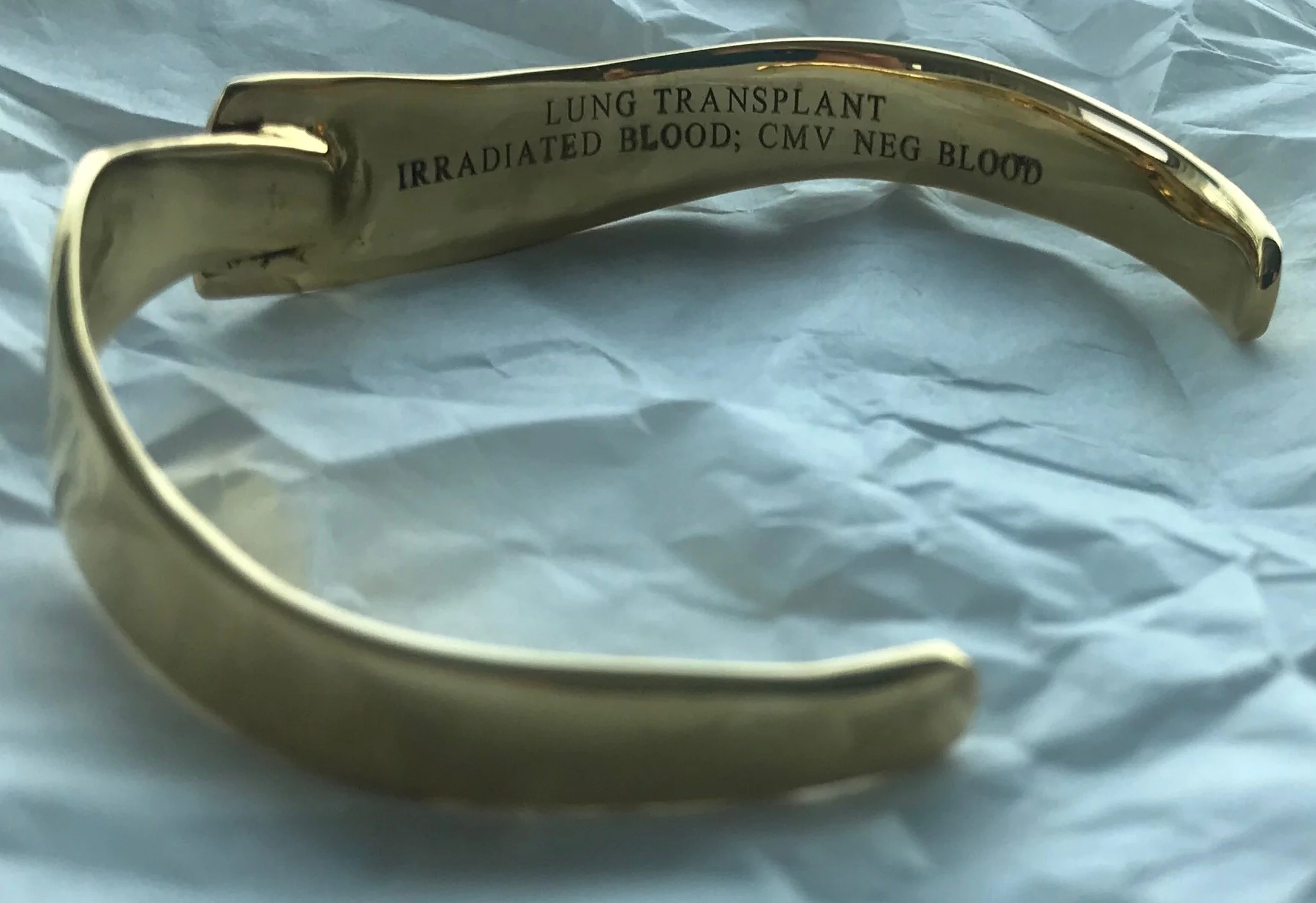Organ Transplant Bracelets
Organ transplantation is a life-saving procedure that involves the surgical replacement of a damaged or diseased organ with a healthy one. While organ transplantation has become more common in recent years, it still carries certain risks and requires ongoing medical treatment and monitoring. In addition, people who have received an organ transplant need to take certain precautions and wear a medical ID bracelet or necklace to ensure that medical professionals are aware of their condition in case of an emergency.
Treatment of Organ Transplants
Organ transplantation involves a complex and multi-step process that requires careful coordination between medical professionals and the patient. Some common treatments and steps involved in the organ transplantation process include:
Evaluation: Before a patient can receive an organ transplant, they must undergo a comprehensive medical evaluation to determine if they are a suitable candidate for the procedure.
Surgery: The transplantation surgery itself involves the removal of the diseased or damaged organ and the implantation of a healthy one.
Immunosuppressant medication: After the surgery, patients must take medication to suppress their immune system and prevent the body from rejecting the new organ.
Ongoing monitoring and treatment: Patients who have received an organ transplant require ongoing medical monitoring and treatment to ensure that the new organ is functioning properly and to manage any complications that may arise.
Symptoms of Organ Transplants
While organ transplantation can be life-saving, it can also have certain short-term and long-term effects on the body. Some common symptoms that people who have received an organ transplant may experience include:
Rejection: Despite the use of immunosuppressant medication, the body may still reject the new organ, leading to symptoms such as fever, fatigue, and flu-like symptoms.
Infection: People who have received an organ transplant are more vulnerable to infections, particularly in the first few months after the surgery.
Medication side effects: The immunosuppressant medication used after an organ transplant can have side effects such as nausea, vomiting, and fatigue.
Long-term effects: Over time, people who have received an organ transplant may experience complications such as high blood pressure, diabetes, and osteoporosis.
Organ transplantation is a life-saving procedure that can have significant short-term and long-term effects on the body. While it is a complex and multi-step process that requires ongoing medical treatment and monitoring, it can allow people to live healthy and fulfilling lives. Wearing a medical ID bracelet or necklace is essential for people who have received an organ transplant, as it can provide critical information about their medical history and help ensure that they receive appropriate treatment in case of an emergency. By taking these steps, people who have received an organ transplant can manage their condition effectively and enjoy a high quality of life.
Organ Transplant Online Resources
Organ Procurement and Transplantation Network (OPTN) / United Network for Organ Sharing (UNOS): OPTN manages the national transplant waiting list and oversees the allocation of organs in the United States. UNOS offers information about organ transplantation, waiting lists, and transplant policies.
American Society of Transplantation (AST): AST is an organization dedicated to advancing the field of transplantation. They provide resources for healthcare professionals, patients, and families, including information about various organ transplants.
Transplant Recipients International Organization (TRIO): TRIO is a global organization that supports transplant recipients, living donors, and their families. They offer resources, support groups, and advocacy efforts.
National Kidney Foundation (NKF): NKF provides resources about kidney transplantation, living donation, and kidney health. Their site offers information for patients, donors, and healthcare professionals.
American Liver Foundation: This foundation offers information about liver transplantation, living donation, and liver health. Their resources are valuable for patients, donors, and caregivers.
TransplantLiving: This website, maintained by UNOS, provides comprehensive information about transplantation, including organ-specific information, patient stories, and resources for donors and recipients.
Donor Network of Arizona (DNA): DNA is an example of a regional organ procurement organization. Similar organizations exist in different states and regions, overseeing organ donation and transplantation.
Children's Organ Transplant Association (COTA): COTA focuses on fundraising for transplant-related expenses for children. They provide support for families facing the financial challenges of transplantation.
Global Transplant Initiative: This international organization aims to improve organ transplantation worldwide through collaboration, research, and education.

